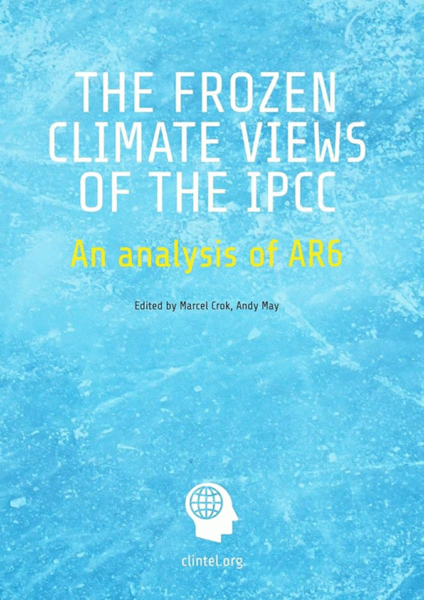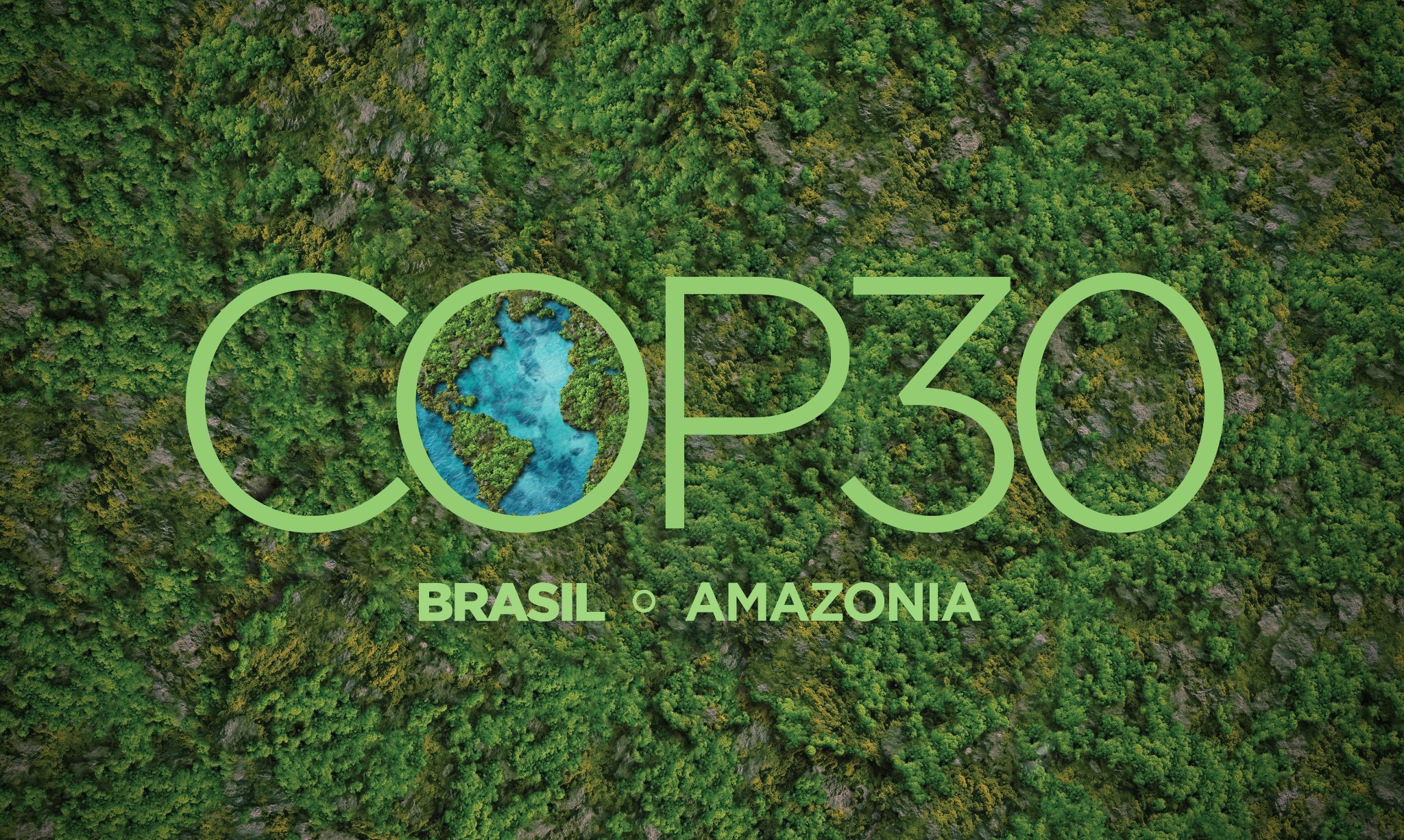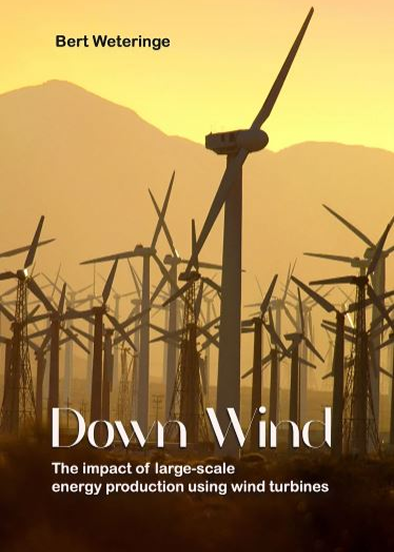Thirty years of COP failures: the damning assessment of a climate process disconnected from reality
Science-Climate-Energy asked Samuel Furfari to present the thesis of his latest book, The Truth About the COPs, 30 years of illusions, a rigorous and documented analysis of the successive failures of this process, that questions the relevance of its perpetuation. (This book is dedicated to Professor Ernest Mund, who was a regular contributor to Science-Climate-Energy, read more here).
With COP30 in Belém, Brazil, from 10 to 21 November 2025, and with nearly 70,000 participants expected, it becomes more important than ever to critically assess the true effectiveness of these climate conferences. This new edition, through its organizational excess, embodies the growing gap between the diplomatic process and the global energy reality. The results of three decades of climate negotiations are clear: despite the accumulation of solemn declarations and ambitious commitments, global CO₂ emissions have increased by 65% since the Earth Summit that ushered in the decarbonisation process.
The failure: the Kyoto Protocol and its illusions
COP is an acronym for Conference of the Parties, the annual meeting of states that have ratified the United Nations Framework Convention on Climate Change (Rio, 1992) to commit to reducing their CO₂ emissions. The first conference was held in Berlin in 1995 under the chairmanship of Angela Merkel, the then Minister of the Environment in Helmut Kohl’s government. In 1994, I took responsibility for the climate issue at the European Commission’s Directorate-General for Energy, which allowed me to follow these annual conferences even before the first COP. Even after leaving this position, I continued to observe these conferences out of personal interest, which allowed me to get an in-depth view of the process even without being directly involved.
The Kyoto Protocol (1997) was supposed to mark the advent of a binding global climate management. By setting the goal of reducing emissions of industrialized countries by 5.2% by 2010-2012, it ushered in the era of quantified commitments. Reality soon crushed hope: the Clinton-Gore administration of the United States, then the largest emitter in the world, refused to ratify the treaty, even though it had negotiated with it, while Canada withdrew from it in 2011. More importantly, the flexibility mechanisms had allowed for a virtual transfer of emissions rather than an actual reduction. Between 1990 and 2010, global emissions increased by 32%, highlighting the structural inefficiencies of a system that exempts emerging countries from all restrictions.
Emphasizing that this goal had to be achieved in ‘2010-2012’ – a demand of the ecologists – is not a detail: this deadline was intended to feed the discourse of permanent urgency. The targets were not met in 2012, and a fortiori in 2010; but this process also ensures that the public debate is constantly under pressure.
It should be noted that at COP3 there were no heads of state and government, but only ministers of the environment, and therefore it was easy to agree on utopian objectives.
The Copenhagen Debacle: Revealing North-South Divisions
COP15 in Copenhagen, held in December 2009, was supposed to mark a decisive turning point in international climate governance by establishing a successor framework to the Kyoto Protocol, which had been an unacknowledged failure. Although this conference was long awaited, it ended in a resounding failure because no legally binding agreement could be reached. This summit revealed a deep and lasting divide between developed and developing countries, particularly with regard to the sharing of climate responsibilities.
Unlike Kyoto, COP15 saw a strong presence of heads of state and government, who took the lead in the negotiations to prevent ‘green’ ministers from persuading their countries to adopt overly restrictive commitments, which were considered unrealistic given economic interests. When the dramatic economic consequences of decarbonization came to light, many states backed down. There were no longer any binding or even indicative targets at global level.
Emerging countries, particularly China and India, have categorically rejected any significant restriction on their economic development in the name of combating climate change. They invoked the fundamental principle of ‘common but differentiated responsibilities’ and affirmed their right to economic development without undue restrictions, in the face of the disproportionate historical emissions of the industrialised countries. These positions were central to the rejection of a binding treaty and met with strong resistance on the international stage.
The conference ended in a climate of confusion and diplomatic tensions, illustrating the inability of UN bodies to reconcile divergent national interests and the management of global public goods.
The failure of Copenhagen marked a major turning point in international climate governance, showing that the UN Consensus could no longer hide the real strategic conflicts of interest between developed and developing countries. Under pressure from activists and the media, the heads of state and government (Barack Obama, José Manuel Barroso, Nicolas Sarkozy, Angela Merkel, Xi Jinping) were trapped. They were pressured to consider measures that would have harmed their national economy, but they did not give in, preferring failure. Since then, some briefly attend the opening of the COPs to ‘be in the picture’, and then quickly leave the debates to avoid any responsibility for the lack of concrete decisions. Once photographed, they now make sure they don’t participate in the negotiations.
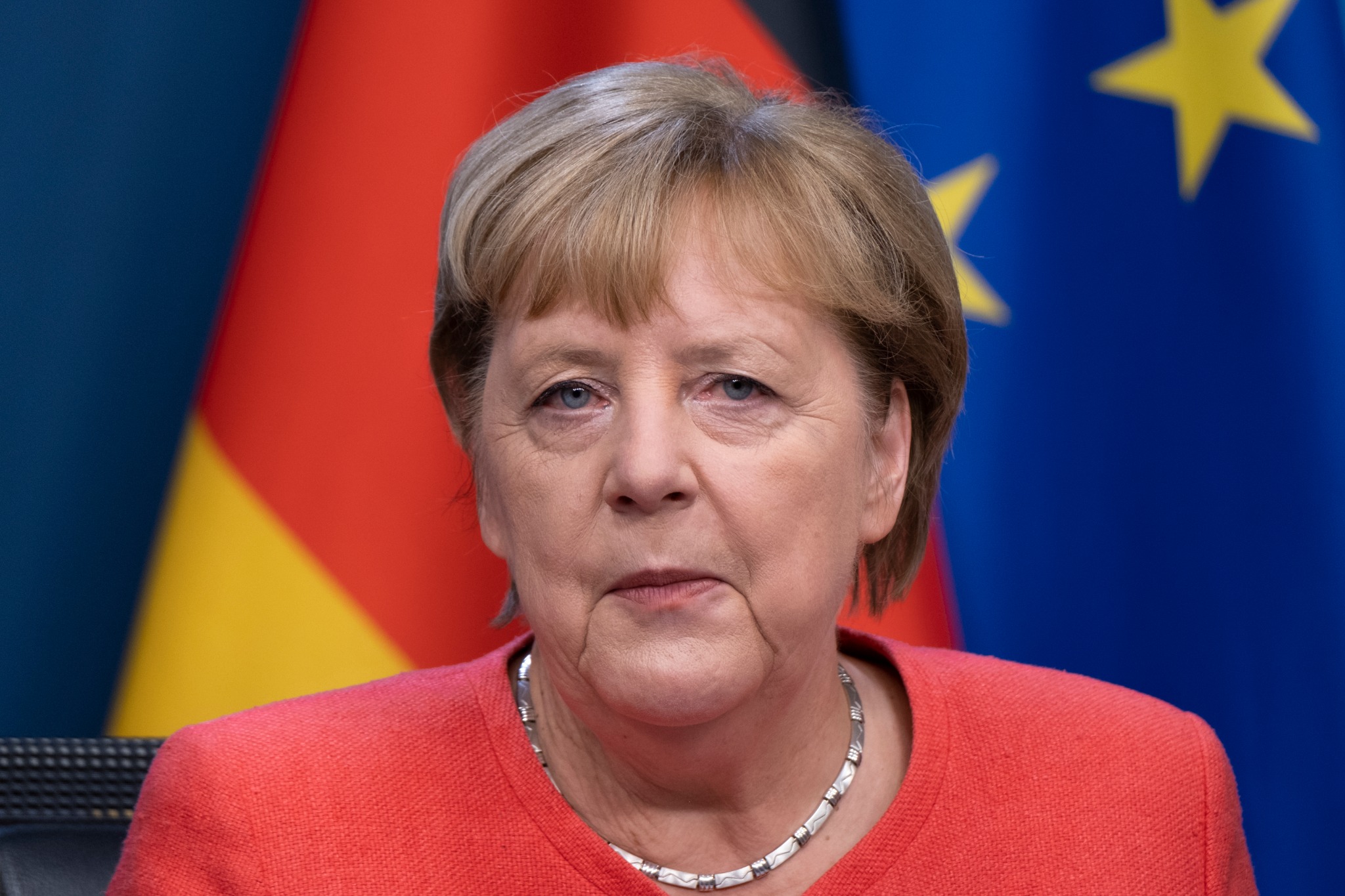
Angela Merkel
Disagreement in Paris: The Inauguration of the Conjuring Power
Presented with great pomp and circumstance as a historic diplomatic success, the Paris Agreement of COP21 (2015) is in fact the triumph of the French art of diplomacy. For months, French diplomacy has been working to convince as many countries as possible to accept this international agreement. It should be noted that this is not a protocol like Kyoto, as it would not have passed the ratification processes in many countries. This very consideration of international law shows the emptiness of what is presented as a French success.
Laurent Fabius claimed with tears in his eyes that it was a historic event… But let’s look at the facts, ten years later: it is above all a monumental failure. It was necessary to try to save François Hollande’s presidential mandate, but it is clear that this COP failed to reverse the trend. Hollande didn’t even have the courage to run again. The Paris agreement did not help: neither him nor the others, except to make the EU and the activists believe that they had reversed the course of the world.
In my book, I also called the chapter devoted to this COP The Paris Disagreement because it is meaningless. It contains nothing more than bureaucratic obligations, which only have the concrete effect of creating unnecessary administrative work – which, ironically, generates additional CO₂ unnecessarily. A nice ecological farce because the consumption of global fossil fuels has continued to increase. Their share remains overwhelming, almost 87% of the global energy mix. Nothing in this agreement really changes the energy choices of states, fossil fuels are still popular because in ten years they represent 77% of the growth in demand, i.e. the gap between them and renewables continues to widen (also see the article Adding energy, not transition: fossil fuels remain the basis of progress, of July 18, 2025 in Science-Climate-Energy).
Paradoxically, nuclear power – the only carbon-free source capable of providing abundant and controllable electricity – remained marginalised in international climate negotiations until COP 28. However, the development of advanced nuclear technologies, including small modular reactors, would be a credible solution to the dual need for economic development and the reduction of CO₂ emissions for those who still believe in it. Persisting in excluding this option from the global energy mix is a major strategic mistake, if not a historical one.
The geopolitical turning point: the revolt of the developing countries
The geopolitical landscape has changed significantly since the Paris disagreement, marking a definitive break with the decarbonization paradigm. The opening of COP29 in 2024 in Baku by Azerbaijani President Ilham Aliyev, who affirmed that “fossil energy is a gift from God”, symbolized this change of course. This declaration reflects a deeper reality: African and Asian countries now openly refuse any restriction on their development in the name of fighting climate change. As the energy needs of the African continent – where 180 million people live in cities of more than five million people – demonstrate, electrification cannot rely on intermittent renewables at all. The demand for abundant and cheap energy is becoming the top priority, pushing decarbonization into the background.
This change was already noticeable at the COP in Glasgow, where the Dutch socialist Frans Timmermans, then First Vice-President of the European Commission, convinced the erratic environmentalist Boris Johnson – despite presenting himself as a conservative – to ban coal. Well, they are both out of the race now, and coal consumption is constantly increasing. After Glasgow, we were treated to COPs in the oil-producing countries (Egypt and the UAE) that refocused the conference in favour of security of energy supply. Worse, in Dubai, on the sidelines of the COP, a conference was held to revive nuclear power: climate activists had to empty the cup to the bottom. It should be remembered that Belgian Prime Minister Alexandre De Croo was photographed but could not sign the agreement on this nuclear resurgence, because his government was under the thumb of the Greens. After all, if you look at his career, you can wonder whether this ecologist really wanted to be photographed out of conviction or out of simple hypocrisy.
It should be noted that it was only after the COPs were held in oil-producing countries that developing countries began to dare to speak out, first timidly and then more courageously in Baku, against decarbonisation. For a long time, they made people believe they were interested in decarbonization by advocating for new financing from OECD countries. They were encouraged by climate activists who demanded ‘technology transfer’, i.e. the provision of technologies; as if technology were not a commercial value owned by private companies, and that it could simply be given away for free to less fortunate countries. It wasn’t until they realized that the money wasn’t going to flow as they had hoped and that technology needed to be bought that they dared to stop supporting environmentalists.
How can we not see that this whole COP process has been nothing but ideological manipulation, political opportunism and greed?
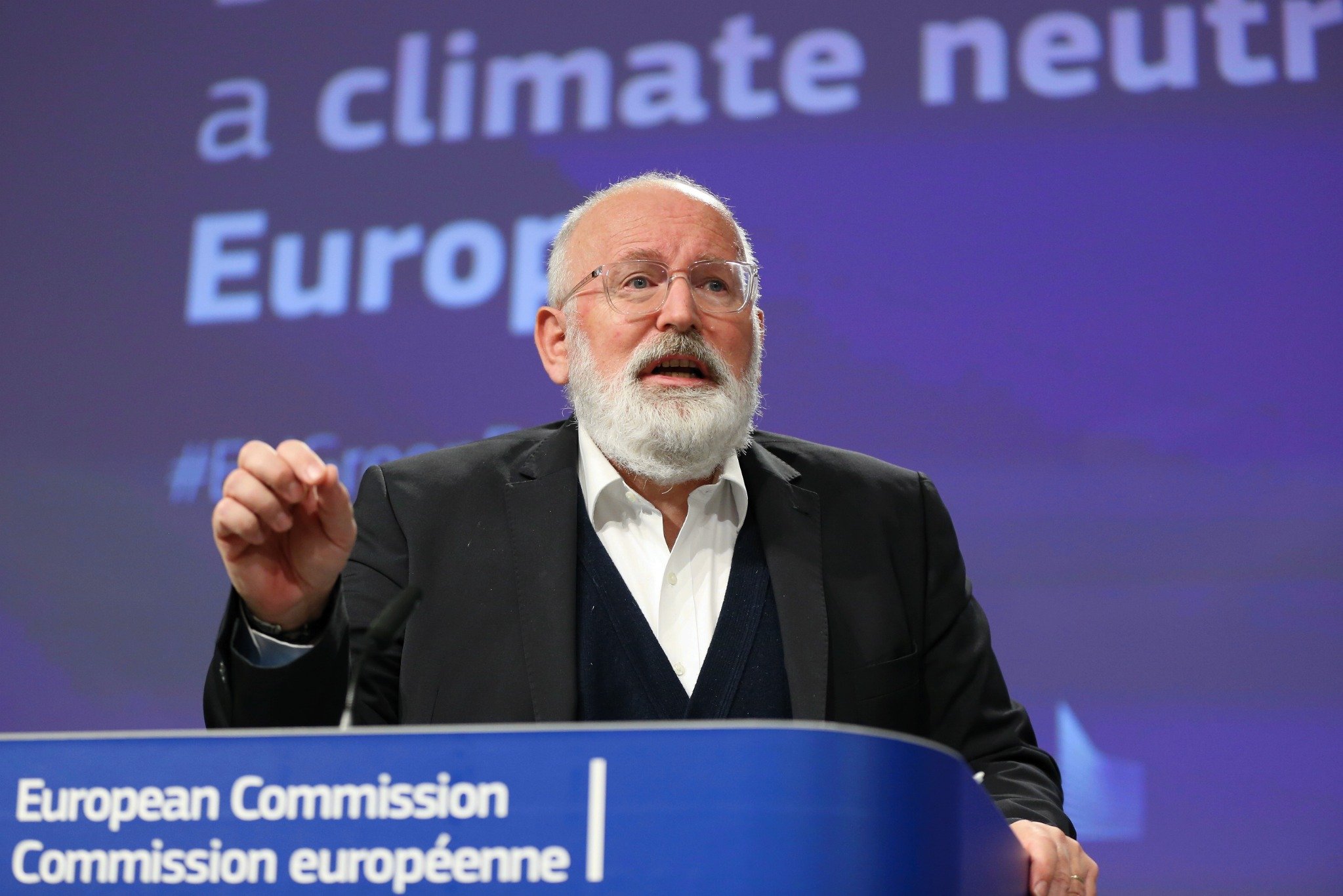
Frans Timmermans
The urgency of resistance against climate dogma
The latest COPs have shown that the real priority of the populations of developing countries — especially China and India — is not the reduction of CO₂ emissions, but the effective and rapid access to economic and social development (thanks to the massive use of coal – the energy that produces the most CO₂ per unit of energy delivered. Narendra Modi has succeeded in electrifying over a billion Indians). Only large-scale electrification will enable an industrial start-up, job creation and structural poverty reduction; This is what African leaders are asking for.
Therefore, energy policy must be based on solutions that provide reliability, reasonable costs and energy density – requirements that currently only conventional forms of energy, fossil and nuclear, meet on the scale that these countries demand. Promoting decarbonization by focusing solely on intermittent renewable sources is to condemn these countries to a state of chronic energy underdevelopment. And they don’t accept it anymore, so the COPs will never be a success.
This reality has just been explicitly acknowledged by Bill Gates, who now argues that decarbonization cannot be a priority, since no imminent climate catastrophe has been scientifically established, as many scientists continue to claim, including at Science-Climate-Energy and at Clintel. This position, long defended by many scientists, economists and critical thinkers, has been systematically marginalized by a press that is too won over to the theses of environmentalists, denying them a platform and contradictory debate.
It is clear that the eradication of poverty requires massive use of electricity, which entails the construction of hundreds of conventional power plants: coal, gas, hydroelectric and nuclear power. To refuse this reality is to maintain illusions at the expense of the fate of the most vulnerable populations. Activists have already lost the climate battle; with all due respect to the European Commission, which persists in an economically suicidal decarbonization policy, detached from the real challenges of development.
It should be noted that it was neither Donald Trump’s nor Bill Gates’ statements that put an end to the utopia of COPs, but rather the thirty years of persistent failures that the media and the European Commission have covered up. They bear a heavy responsibility.
In my book, I cite many events that illustrate the improper nature of these meetings: an Environment Minister who was severely reprimanded by his Prime Minister for foolish decisions; the organization of a conference in Warsaw to promote coal in the middle of the COP; changes of ministers at meetings because of their inefficiency; or the grotesque discussions about the size of refrigerators, when the US ambassador at COP2 declared: “You are not going to decide on the size of our refrigerators”. This directly echoes atmospheric scientist Richard Lindzen’s famous phrase: “If you control carbon, you control life”. This, he says, is the ultimate dream of bureaucrats: to pretend to control life.
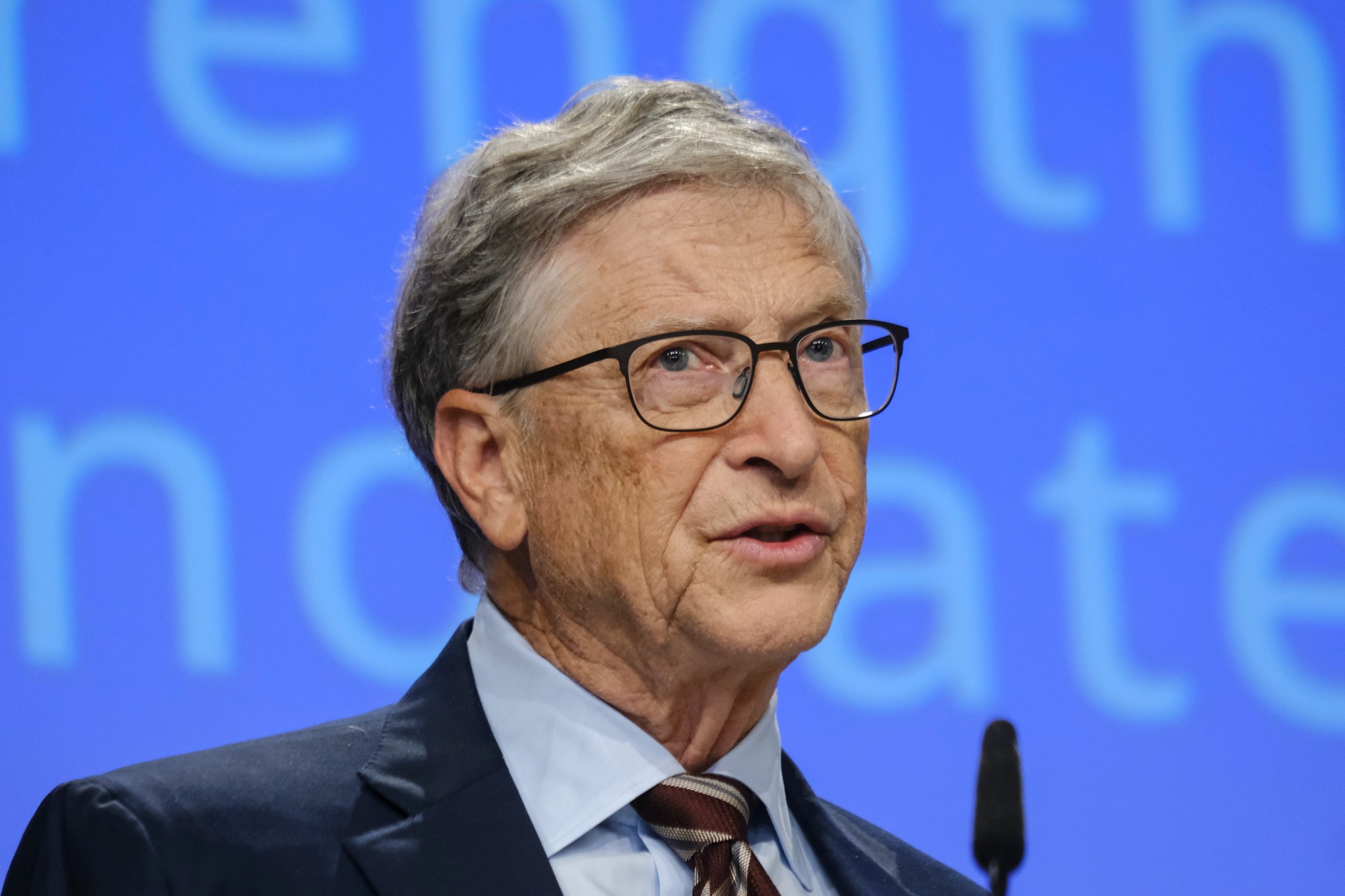
Bill Gates
A fundamental reorientation of international priorities
The conclusion is clear: the COP process has failed in its fundamental objective of reducing global emissions. Its survival is now the result of a useless institutional routine. The considerable sums spent on these conferences — each COP costing around EUR 100 million — could be infinitely better used to finance concrete energy development projects in the countries of the South. The urgency lies not in the organization of new major climate events, but in the recognition of the right to development and the supply of the energy resources essential to their realization.
Return to Brazil after Rio 1992
Thirty years after the first Conference of the Parties (COP) in Berlin, the record is devastating: global CO₂ emissions have increased by nearly 65% since the commitments made in Rio de Janeiro, illustrating the clear failure of a process led by activists and politicians seeking popularity who have sacrificed concrete action to sterile incantation. On the eve of COP30 in Belém, where some 70,000 participants are expected, everything indicates that a new opportunity will be missed.
The contrast is striking: Brazilian President Luiz Inácio Lula da Silva, who opened COP30, has just authorized oil exploration in the Brazilian part of the ‘equatorial margin’, this new Eldorado that stretches from Guyana, through Suriname and French Guiana, to the northeast of Brazil, near the Amazon River. This vast basin, which is currently in full development, embodies the brutal clash between economic imperatives and international climate rhetoric.
If Brazil aspires to deliver on Stefan Zweig’s promise to “be the country of the future and feed the world”, it will necessarily have to rely on abundant energy production — and thus increased use of fossil fuels. This orientation is in total contradiction with the stated objectives of the COP that the country is organizing. Unfortunately, as this book shows, the COP process all too often gives rise to recurring hypocrisy.
Moreover, journalists have a heavy responsibility: they have failed in their critical mission by failing to denounce the immense farce of these conferences and thus contribute to maintaining the illusion of decarbonization while the underlying dynamics remain unchanged.
It is time to turn the page on climate illusions and recognize that the global priority must be economic development and access to energy for all. As the changing positions of emerging countries demonstrate, the future does not belong to ideological decarbonisation, but to energy pragmatism, which alone can meet people’s legitimate aspirations for prosperity, quality of life and well-being. The time has come to abandon a United Nations process that has proved ineffective and to shift international efforts to the real priorities: the fight against poverty and economic development for all through access to abundant and cheap energy.
Should we wait until COP99 fails?
This is a translation of the article Trente ans d’échecs des COP : le bilan accablant d’un processus climatique déconnecté des réalités, published on 7 November 2025 in Science, climat et énergie.
Source pictures: Shutterstock

Samuel Furfari
Samuel Furfari is an engineer, and PhD from University of Brussels. He is a Professor of energy geopolitics and policy. For 36 years he was a senior official in the European Commission’s Directorate-General for Energy. He is author of numerous books.
more news
Glacier fluctuations don’t yet support recent anthropogenic warming
Holocene glacier records show that glaciers worldwide reached their greatest extent during the Little Ice Age and were generally smaller during earlier warm periods. While glacier length is a valuable long-term regional climate indicator, the evidence does not clearly support the idea of uniform, synchronous global warming.
Challenges to the CO2 Global Warming Hypothesis: (13) Global Warming Entirely from Declining Planetary Albedo
Is the recent warming the result of less reflection of sunlight by the Earth? Two researcher state that declining albedo — not CO₂ — dominates the temperature trend.
Guardian Claims We’re Still Only Approaching the Climate Point of No Return
The Guardian claims the world is edging toward a climate “point of no return,” where unstoppable warming will lock Earth into a catastrophic “hothouse” future. Yet the geological record tells a very different story. Past periods of far higher temperatures and CO₂ levels did not end life or civilization’s prospects — they supported abundance and evolutionary expansion.
